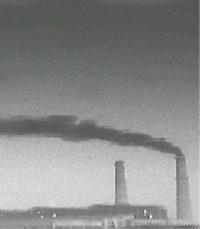Bokaro, steel...
 The Bokaro Steel Plant (BSP), a subsidiary of the Steel Authority of India (SAIL), claims to have overpowered the threat of pollution.But patients keep flocking to the Bokaro General Hospital with rare illnesses.
The Bokaro Steel Plant (BSP), a subsidiary of the Steel Authority of India (SAIL), claims to have overpowered the threat of pollution.But patients keep flocking to the Bokaro General Hospital with rare illnesses.
Most of the affected workers do not know what diseases they are suffering from, be it skin allergies or breathlessness. Neither do the doctors tell them the nature of their diseases. Skin allergies or breathlessness may not be fatal, but there are reports of diseases like tuberculosis, cirrhosis of the liver and respiratory disorders which can be fatal. Trade union leader C S Tiwari says the management has done very little to tackle the menace. In April 1990, around 4 lakh litres of oil spilled from BSP into the Damodar river, the lifeline of Dhanbad, Bokaro and parts of West Bengal. This oil spill affected the water supply. Oil and grease content in the river water was found to be in the range of 6.8 to 8.6 mg/litre.
Over the years, Damodar has virtually become an industrial drain due to uncontrolled effluent discharge from the BSP and other coal-based, chemical and fertiliser plants that dot its banks. The river passes through many villages, to which the river is the only drinking water source.
A number of people say that the main sufferers are infants. But a state pollution control official said that "there might be infants who suffer from diseases, but these are definitely not due to pollution. There is no such record in the Bokaro Hospital'.
Meanwhile, BSP officials are trying hard to sell their clean-up theories. According to them, pollution control equipment were designed and installed as early as 1970 with specific raw materials. Since then the quality of raw materials has deteriorated. Over the years, technology has also become obsolete. The pollution norms fixed by the central and state pollution control boards could not be met.
Thereafter, in 1989, BSP established an independent environment unit. Apart from this, SAIL, in consultation with an Australian pollution management consultation firm, has also undertaken a project to introduce long-term pollution control measures at a cost of Rs 700 crore, say BSP officials.
But not many people are ready to buy BSP's theories. "Why should we believe what the management says. We don't want talks, we want the management to take steps,' says Vijendra Murmu, a trade union activist.
